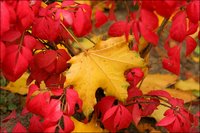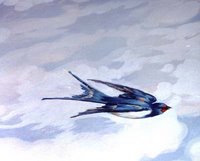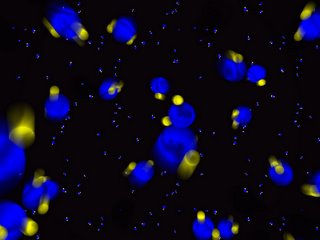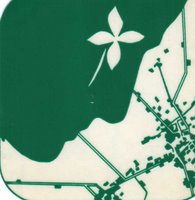HAIKU o HAIKAI poesie di Ettore Mosciàno.
(Italiano - english)
L'Haiku o Haikai è un breve componimento della lirica giapponese (soltanto tre versi di 5,7,5 sillabe). E' forma molto antica e senza tempo. L'haiku è nato come poesia comico-satirica ed è stato portato a perfezione dal poeta Matsuo Basho (sec. XVII), iniziatore della scuola dell'haiku lirico. Le ulteriori caratteristiche dell'haiku sono: l'istantaneità, la rapidità senza riflessione, l'intuizione e il giudizio immediato, la percezione diretta, le atmosfere sospese, le stagioni con le loro varie manifestazioni: le piante, i frutti, gli animali, gli elementi inorganici.
Il fascino dell'haiku sta nella sua profondità misteriosa, sospesa, mai completamente rivelata, ma nello stesso tempo indica ciò che è immanente, nella concretezza della vita quotidiana. La sua apparente semplicità potrebbe ingannare un lettore disattento.
HAIKU di Ettore Mosciàno (*copyright. Proprietà letteraria riservata).
1.
Ruota nell'aria
una foglia leggera:
ride, come te.
2.
Sotto il ponte
trapassa in un volo
rondine nera.
3. 
A pioggia scesa
l'arcobaleno gioca
archi di ping-pong.
4.
Scossa leggera
sul ramo più alto.
S'alza e vola, frrr...
5. 
D'accento grida
la rondine in volo:
è qui, sulla è.
6.
Fiori dipinti
infranti d'eleganza:
un vaso rotto.
7.
Pioggia d'estate.
che bagna il ciliegio.
Con quante gocce ?
8.
Cullata d'onda
la roccia levigata
i sogni pesca.
9.
Festa d'estate,
s'inonda di colori,
al suono di gong.
10.
Giunto dal bosco,
respiro di nebbia
bussa sul vetro.
11.
Il ramo apre
al vento, nel salice,
la verde chioma.
12.
La scura roccia
con neve caduta
trucca il viso.
13.
Luna riflessa.
Un sasso nell'acqua
la bacia nel "flop".
14.
Pesco fiorito
saluto sulla strada,
strizzando l'occhio.
15.
La melagrana
apre, tra verdi rami,
la bocca rossa.
16.
Legno che scoppia:
scintilla di lucciola
qui, nel camino.
17.
Il cigno rosa
allarga gli anelli
spingendo l'acqua.
18.
Raggi solari
tra il castagno rosso:
frecce di luce.
19.
Luna serale:
salta solo nel bosco
lo scoiattolo.
20.
Le onde alte,
in rulli rilucenti,
giù, in frantumi.
21.
Canta il gallo
dal chiaro spunta l'alba:
è chicchirichì.
22.
Disegni lievi
sulla coperta di neve
il merlo scrive.
23.
Rondine sola
trapassa in un volo
il ponte rosso.
24.
Pesce rosso va
qui, là, nella fontana
aprendo onde.
25.
Cerchi di fumo
poesie nell'aria:
brucia l'alloro.
(English)
The HAIKU or HAIKAI is a short poem of japanese lyric (only three lines of 5,7,5 syllables). It's ancient form of poetry, timeless. The haiku originated as a comic-satirical poetry and was brought to perfection by the poet Matsuo Basho (XVII), founder of the school haiku lyric. The additional features are haiku: the immediacy, speed without reflection, insight and opinion immediate direct perception, the suspended atmospheres, the seasons with their various manifestations: plants, fruits, animals, inorganic elements. The haiku charm lies in its mysterious depths, suspended, never fully revealed, but at the same time what is and is immanent in the reality of everyday life. Its simplicity may fool an inattentive reader.
(The english translation can not respect the original italian syllabation of 5,7.5, in the lines. It's clear.)
1) Rotates to air
with lightness a leaf:
is laughing, like you.
2) Under the bridge
pierces by a fly
black swallow.
3) After the rain
the rainbow is playing
arcs of ping-pong.
4) A light movement
over the higher branch.
Gets up and flies, frrr…
5) With accent screams
the swallow that is flaying:
it’s here on 's. ( ‘ = is the swallow)
6) The painted flowers
a death of elegance:
the broken vase.
7) By summer rain
is bathed the cherry’s tree.
With how many drops?
8) Cradled by wave,
is the polished rock
fishing the dreams.
9) Summer holiday,
is flooded of colours,
the sound of a gong.
10) Came from the wood
the breathing of the fog,
knocks to window.
11) The branch opens
to the wind, in the willow,
the green weeping hair.
12) The obscure rock
with the snow that is fallen
puts make-up its face.
13) A reflected Moon.
A pebble in the water
kisses her with “flop”.
14) To peach blossom
I say “hello!” by the street
winking at flowers.
15) Pomegranate
shows, among green branches,
grains of its red mouth.
16) Wood which is bursting:
hundred sparks of fire flays
here, in fireplace.
17) The pink swan swimming
is enlarging the rings
pushing the water.
18) The sunbeams go in
the leaves of red chestnut:
with arrows of light.
19) Moon in evening:
jumps alone into the wood
the happy squirrel.
20) High waves go up,
with silver shining in rolls,
and go down, break up.
21) Rooster is singing
by brightness comes the dawn:
is “chicchirichì”.
22) Slight drawings
upon the blanket of snow
the blackbird writes.
23) Swallow alone
is crossing the sky, flying up
the red bridge.
24) It's red fish darting
here, there, in the fountain,
which opens waves.
25) Circles of smoke
poems in the air:
burns the laurel.
Labels: armonia sociale, bellezza, haikai, haiku, Mosciàno Ettore, natura, poesia, sintesi espressiva, spiritualità Giappone



4 Comments:
This comment has been removed by a blog administrator.
Una grande sensibilità poetica, con stile e forma in armonia, complimenti. Livio Cifola
oakley sunglasses, tiffany and co, louboutin pas cher, polo ralph lauren outlet, ray ban sunglasses, replica watches, prada outlet, oakley sunglasses, louboutin shoes, longchamp pas cher, nike air max, louboutin, nike outlet, kate spade outlet, air jordan pas cher, christian louboutin outlet, burberry, longchamp outlet, sac longchamp, longchamp, louis vuitton outlet, tiffany jewelry, louis vuitton, ugg boots, louis vuitton outlet, ray ban sunglasses, michael kors, gucci outlet, prada handbags, polo ralph lauren outlet, longchamp outlet, louis vuitton, chanel handbags, ray ban sunglasses, oakley sunglasses, nike free, jordan shoes, nike free, replica watches, nike roshe run, louis vuitton, ralph lauren pas cher, air max, uggs on sale, louboutin outlet, ugg boots, tory burch outlet, nike air max, cheap oakley sunglasses, oakley sunglasses
شركة تعقيم وتطهير عجمان
شركات تعقيم ضد كورونا في عجمان
Post a Comment
<< Home